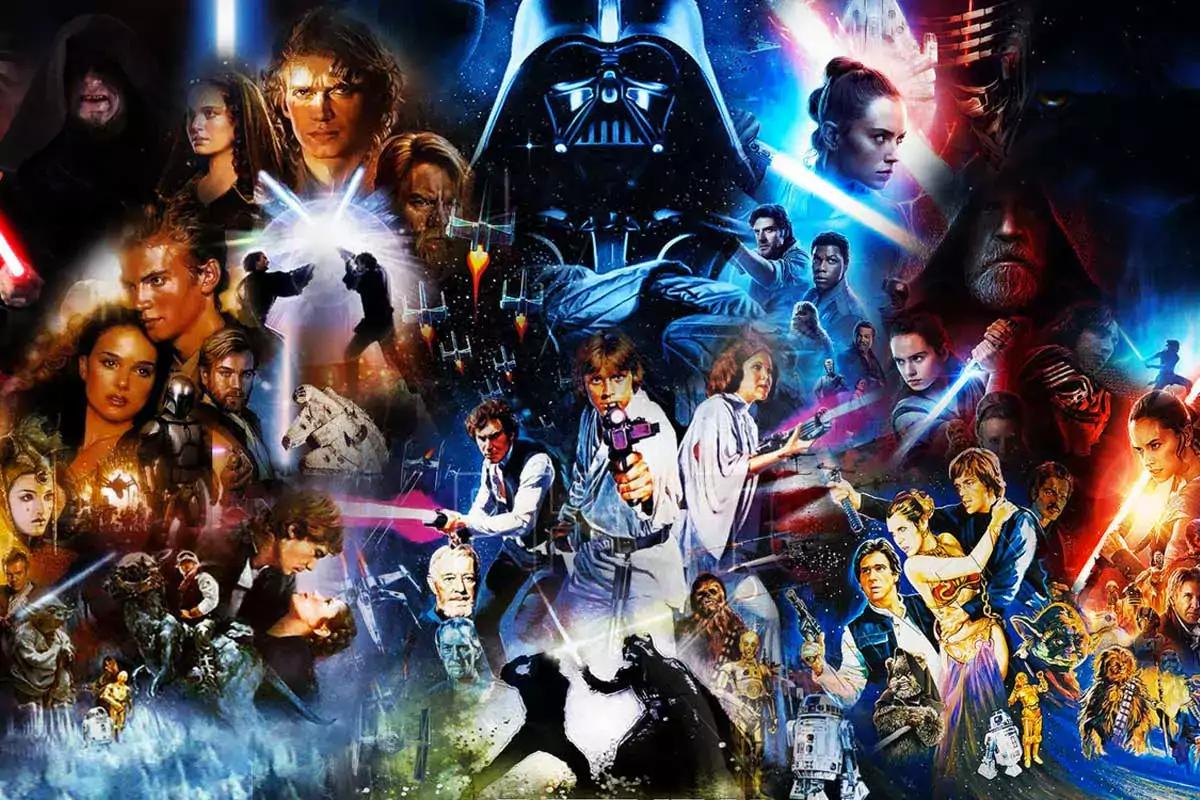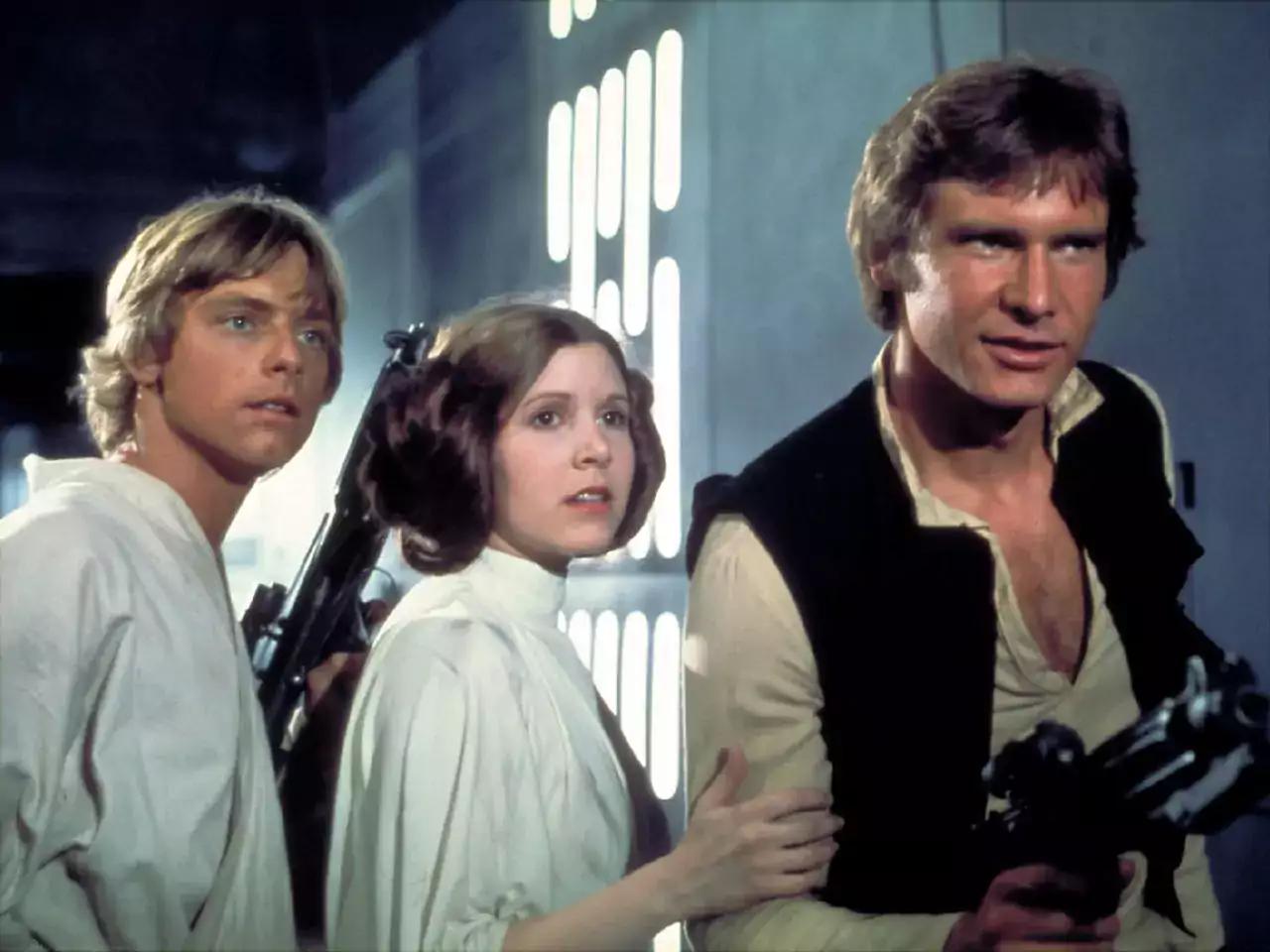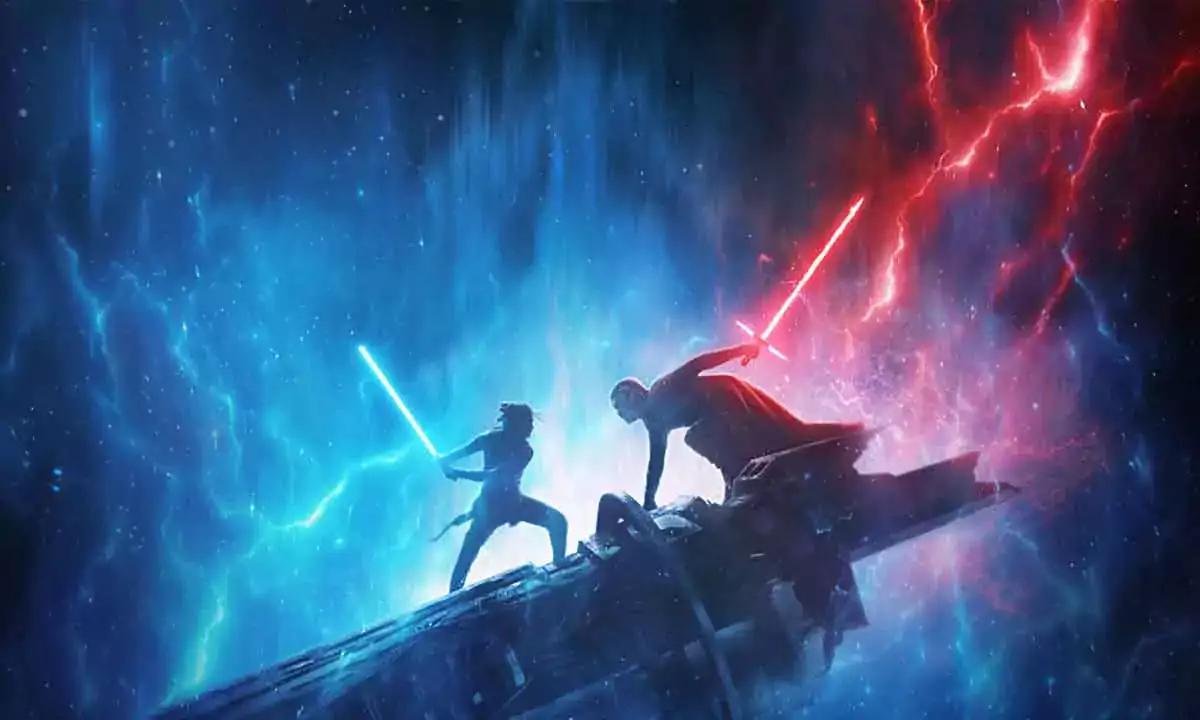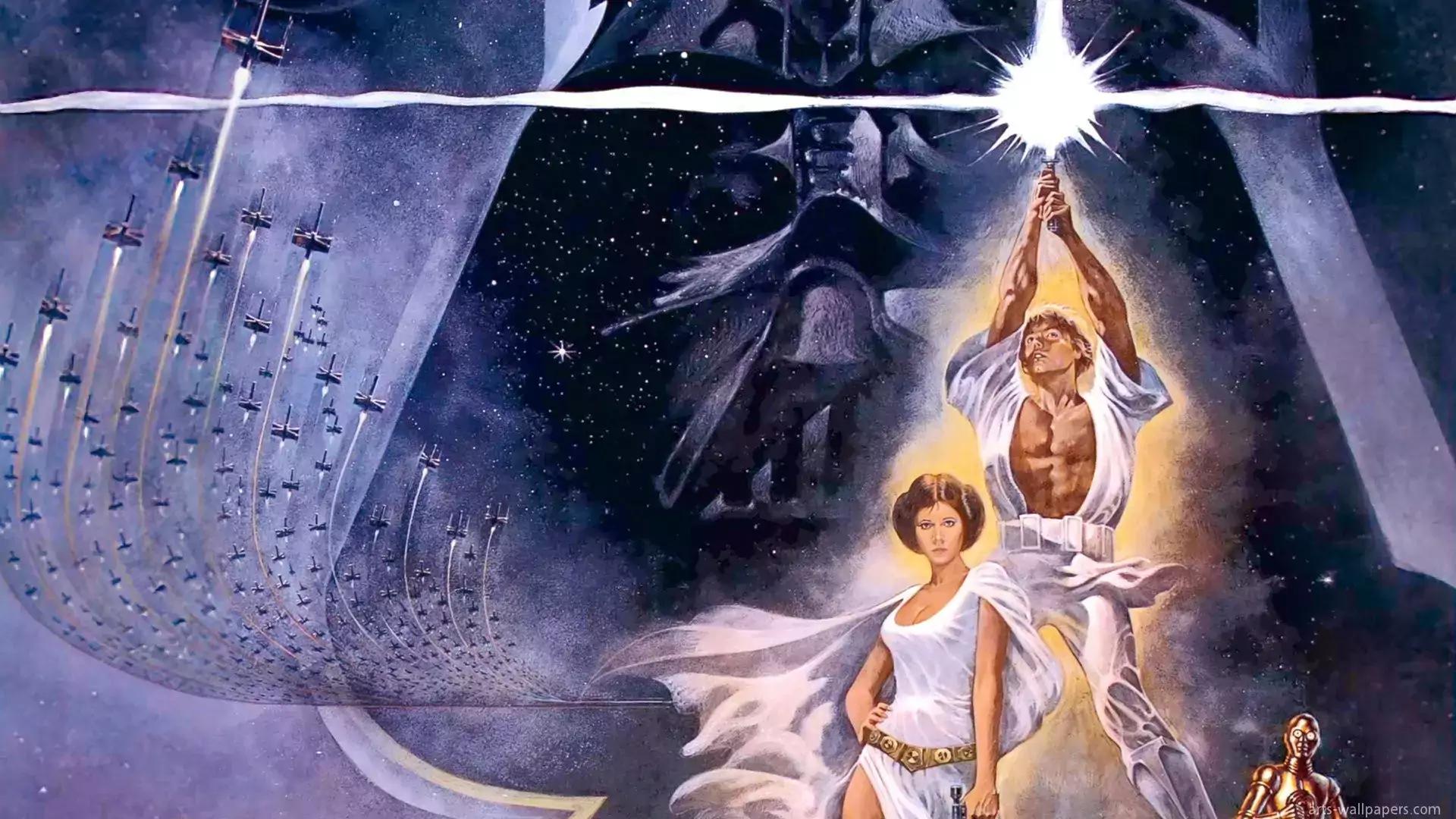
Since its debut in 1977, Star Wars has become one of the most iconic and popular movie sagas of all time. With its galaxy far far away and memorable characters, it has captivated millions of fans around the world. However, there is an ongoing debate as to whether Star Wars can really be classified as science fiction or if it belongs to another genre.
Today we want to talk about each of the different points of view on whether or not Star Wars is science fiction and we will analyze the distinctive characteristics of Star Wars that have led to this debate. Get ready to delve into the Star Wars galaxy and find out if it truly belongs in science fiction, fantasy, or a unique category that defies conventional classifications.
What is science fiction?
To begin, it is important to establish a clear understanding of what is meant by science fiction. According to the Encyclopedia Britannica, science fiction is a literary and film genre that is based on imaginary scientific or technological assumptions. It is usually set in the future or in alternate realities and explores the effects of scientific and technological advances on society and humanity. Additionally, science fiction can address topics such as space exploration, time travel, artificial intelligence, and virtual realities.

Star Wars as science fiction
An argumentative approach holds that Star Wars does qualify as science fiction due to various elements present in the saga. Among them are:
- Futuristic Setting: Star Wars takes place in a galaxy far away in an undetermined time. Although no direct connection to our reality is established, advanced technologies and spacecraft can be identified that reflect imaginary scientific advances. This futuristic setting is a key feature of science fiction, as it allows one to explore the implications of technology and science on society.
- Fictional Science and Technology: The saga features a wide variety of fictional technologies, including lightsabers, sentient droids, and giant space stations. These elements are based on imaginary scientific concepts and contribute to the futuristic aesthetic characteristic of science fiction. While detailed scientific explanations of how these technologies work are not offered, their presence in the Star Wars universe suggests a world driven by scientific and technological advances.
- Exploration of Universal Themes: Star Wars not only focuses on action and combat in space, but also addresses deeper themes such as good and evil, destiny, redemption and power. These themes, while present in other genres, are explored from a futuristic and technological perspective in Star Wars. The fight between the Jedi and the Sith, for example, reflects a moral and ethical conflict that is amplified in a science fiction context.

Star Wars as space fantasy
Another point of view holds that Star Wars is more suited to the space fantasy genre than strictly speaking science fiction. Here are some arguments to support this claim:
- Focus on mythology and fantasy: Unlike science fiction, which is based on scientific assumptions, Star Wars is inspired by the narrative structure of epic fantasy and mythological legends. The struggle between good and evil, the idea of the chosen hero, and the existence of a mystical force that guides the main characters are elements found in fantasy rather than science fiction.
- Mystical and Magical Elements: The Force, which allows characters to manipulate objects and have superhuman abilities, is presented as a kind of mystical power. Although attempts have been made to scientifically explain the Force in the saga, its nature is largely metaphysical and closer to magical elements than scientific explanations. This mystical and magical approach is more common in fantasy than in science fiction, which tends to be based on scientific concepts more rigorous.
- Emphasis on adventure and fantasy: Although Star Wars features technological and futuristic elements, its primary focus is on adventure and fantasy, rather than rigorously exploring scientific and technological concepts. The stories focus on the struggle between good and evil, epic journeys, and heroic deeds, elements most often found in fantasy.

Star Wars as a Space Western
In addition to the debates about whether Star Wars is science fiction or fantasy, it has also been argued that the saga has influences from the Western genre. George Lucas, the creator of Star Wars, has mentioned on several occasions that he was inspired by the classics of Western cinema to shape the narrative of the saga.
The concept of Star Wars as a space Western is based on certain thematic and aesthetic elements present in the story. The idea of a lone hero in a frontier territory, the fight between good and evil, and the desert settings are direct reminiscences of the characteristic elements of the Western.
In the saga, we see characters like Han Solo, a charismatic and skillful smuggler with his spaceship, the Millennium Falcon. Han Solo represents the typical lonely cowboy who crosses the galaxy facing dangers and challenges. Furthermore, the confrontation between the Rebel Alliance and the Galactic Empire can be compared to the confrontations between outlaws and law enforcement officers in Western movies.
Even desert settings, such as Tatooine, evoke images of the frontier towns of the Old West. These parallels between Star Wars and the Western help establish a sense of familiarity and add a classic adventure element to the universe of the saga.

Star Wars as Space Opera
This vision highlights the dramatic, epic, and emotional elements present in the Star Wars narrative, which share similarities with traditional operas.
In Star Wars, we find ourselves with a story filled with family conflicts, betrayals, heroic sacrifices and epic battles between good and evil. These themes, so common in operas, are explored through charismatic and complex characters who find themselves embroiled in a cosmic struggle for the fate of the galaxy. Momentous events, intense emotions and confrontations between powerful characters reflect the grandeur and emotionality characteristic of an opera.
Likewise, music plays a fundamental role in Star Wars, just like in operas. The iconic score composed by John Williams has left an indelible mark on the collective imagination, creating an emotional connection with viewers and enhancing the intensity of the scenes. The music of Star Wars, with its epic choruses and memorable melodies, adds a transcendental, lyrical component to the cinematic experience.
Also, just like the operas, Star Wars presents a world rich in visual detail, from the stunning sets to the elaborate costumes and makeup of the characters. These elements contribute to creating a theatrical and spectacular aesthetic reminiscent of the staging of an opera.
Ultimately, viewing Star Wars as a space opera highlights its epic, dramatic, and emotional nature. The combination of a momentous story, powerful music, and a theatrical aesthetic creates a unique cinematic experience that has captivated audiences around the world. Star Wars transcends traditional genre classifications and becomes a masterpiece that melds elements of science fiction, fantasy, Western and opera to create an extraordinary narrative universe.

Star Wars as a hybrid of genres
A final perspective holds that Star Wars is a hybrid of genres that combines elements of both science fiction and fantasy. This vision acknowledges the presence of futuristic and technological elements in the saga, but also highlights its focus on mythology, heroic archetypes, and epic adventures.
In Star Wars, we found a universe filled with exotic planets, alien creatures, and advanced technologies that define the aesthetic of science fiction. Spaceships, sentient droids, and laser weapons are iconic elements that align with the futuristic world we associate with science fiction.
Yet at the same time, Star Wars also delves into fantasy by introducing the Force, a mystical and spiritual energy that flows through living things and enables them to perform supernatural feats. The Jedi and Sith, with their extraordinary abilities and the fight between good and evil, transport us to a world of magic and mythology, elements closer to fantasy.
This combination of futuristic and mystical elements has been central to the success and enduring popularity of Star Wars. The saga has managed to appeal to a wide audience by combining the wonder of science fiction with the thrill of epic fantasy. It is precisely this fusion of genres that has allowed Star Wars to transcend traditional classifications and become a unique cinematic experience.
George Lucas's perspective
It is worth mentioning that George Lucas himself has stated on several occasions that Star Wars is not science fiction in the traditional sense. In an interview with Rolling Stone, Lucas stated, "I don't like science fiction. Science fiction is a movie with no characters, just special effects. I didn't want to do that." Instead of focusing on the scientific and technological aspects, Lucas put an emphasis on the characters, mythology, and adventure.
According to other statements by George Lucas, the creator of Star Wars, the saga is defined more as a fantasy film and a space opera than as a science fiction film. This statement raises an interesting debate about the classification of genre and the nature of the story.
So, can Star Wars be considered a Science Fiction movie?
Based on George Lucas' statements about Star Wars, we can consider this film saga as an example of soft science fiction. Soft science fiction, also known as speculative science fiction, is characterized by not focusing exclusively on rigorous scientific concepts, but instead uses futuristic and technological elements as a foundation to explore broader themes related to the human condition, society, and adventure.
In the case of Star Wars, although it is set in a fictional universe with advanced technology, space travel, and alien creatures, its main focus is not scientific exploration or scientific rigor. Instead, the saga focuses on the struggle between good and evil, heroism, friendship, and destiny, using the space setting as an exciting and spectacular backdrop.
It is important to note that film genres are not rigid and static categories, but can be flexible and subjective. Star Wars has been influenced by a variety of genres, including fantasy, Western, and opera, which have contributed to its appeal and ability to reach a wide and diverse audience.
Ultimately, the question of whether or not Star Wars is science fiction can have multiple valid answers, as the saga encompasses elements of various genres and has created a unique and captivating narrative universe. It is precisely this combination of diverse elements that has made Star Wars a cultural phenomenon and an inexhaustible source of inspiration and admiration for millions of people around the world.









comments